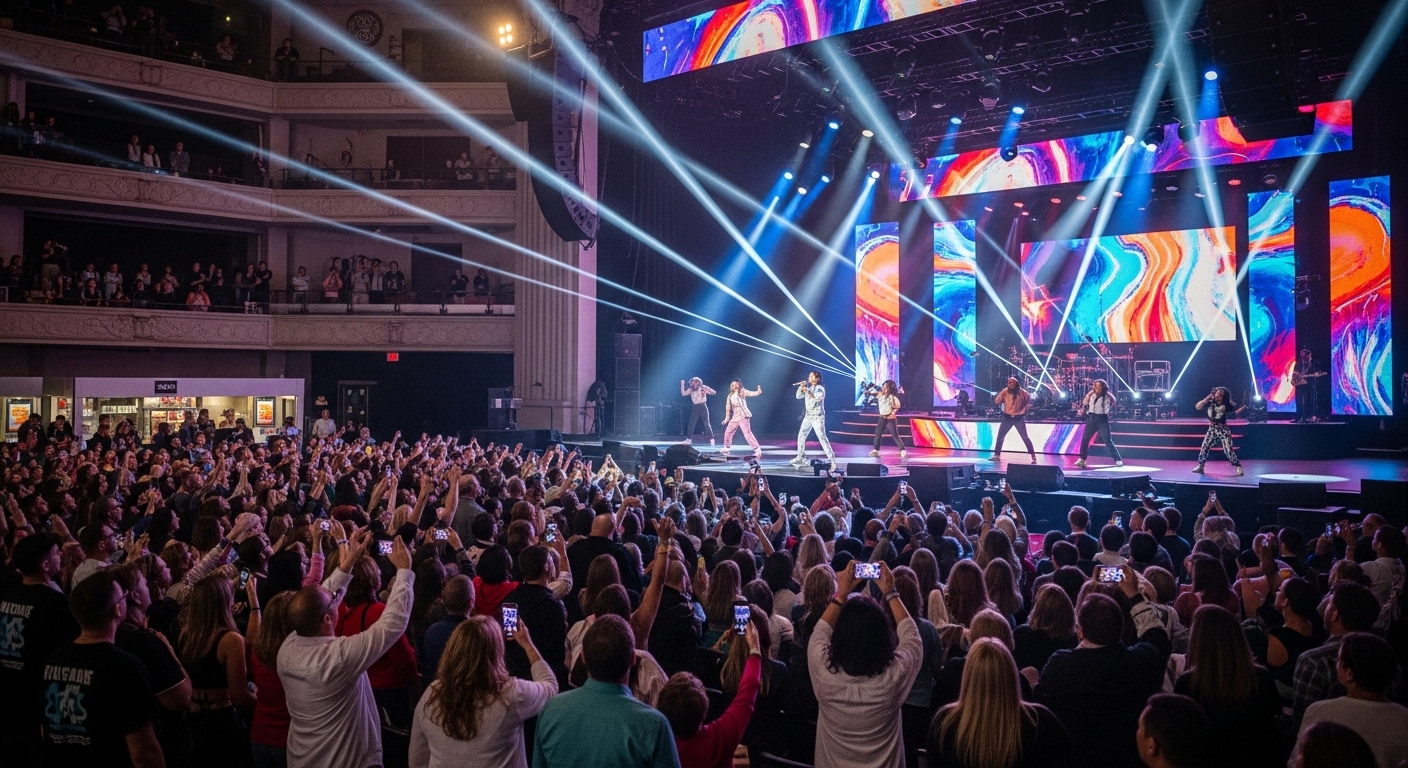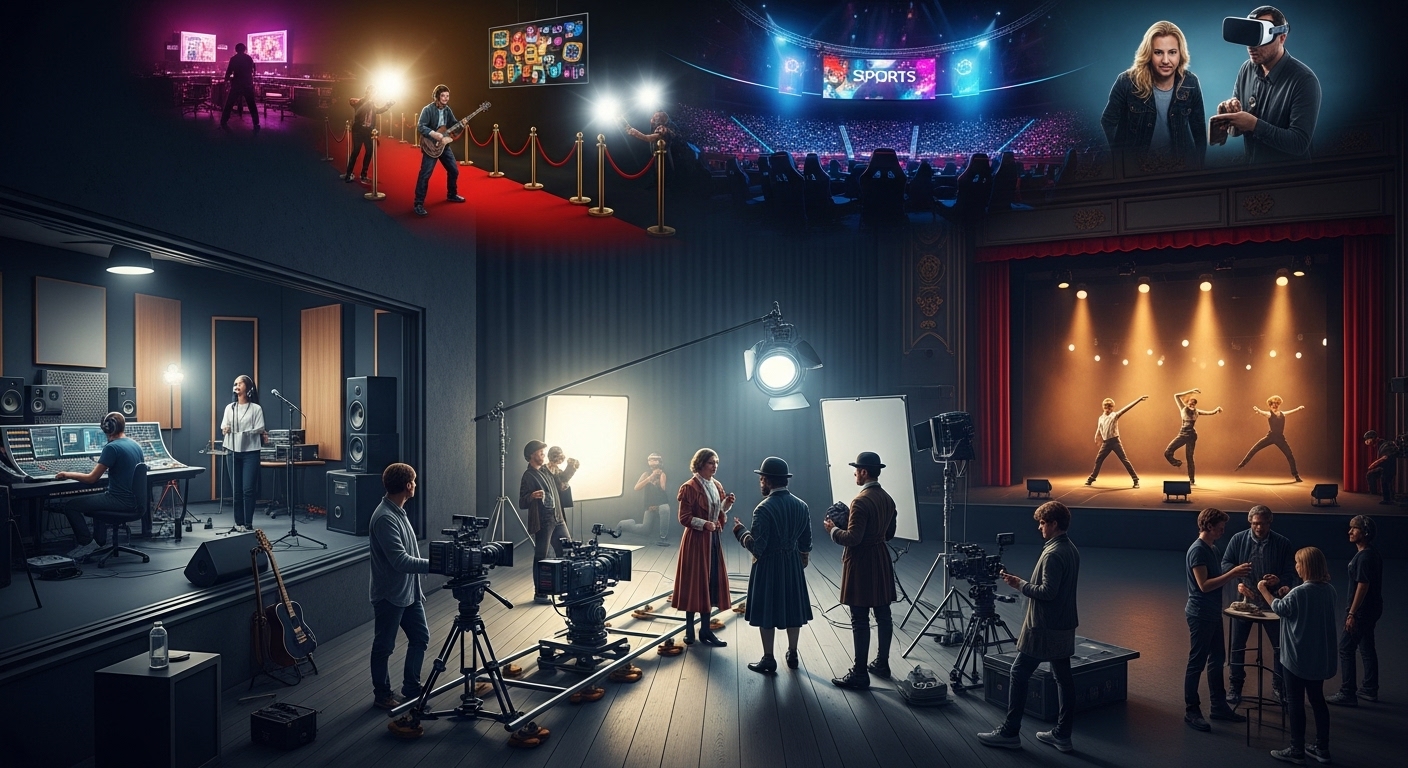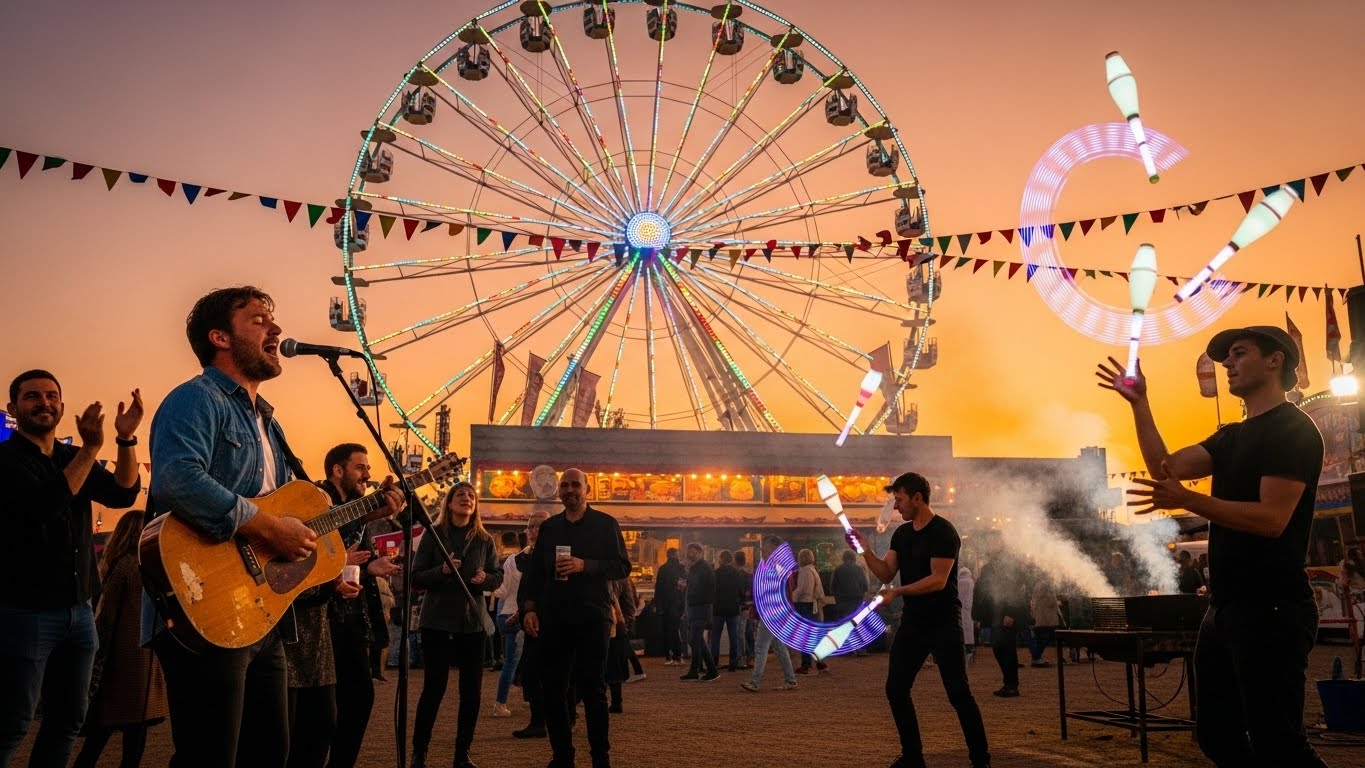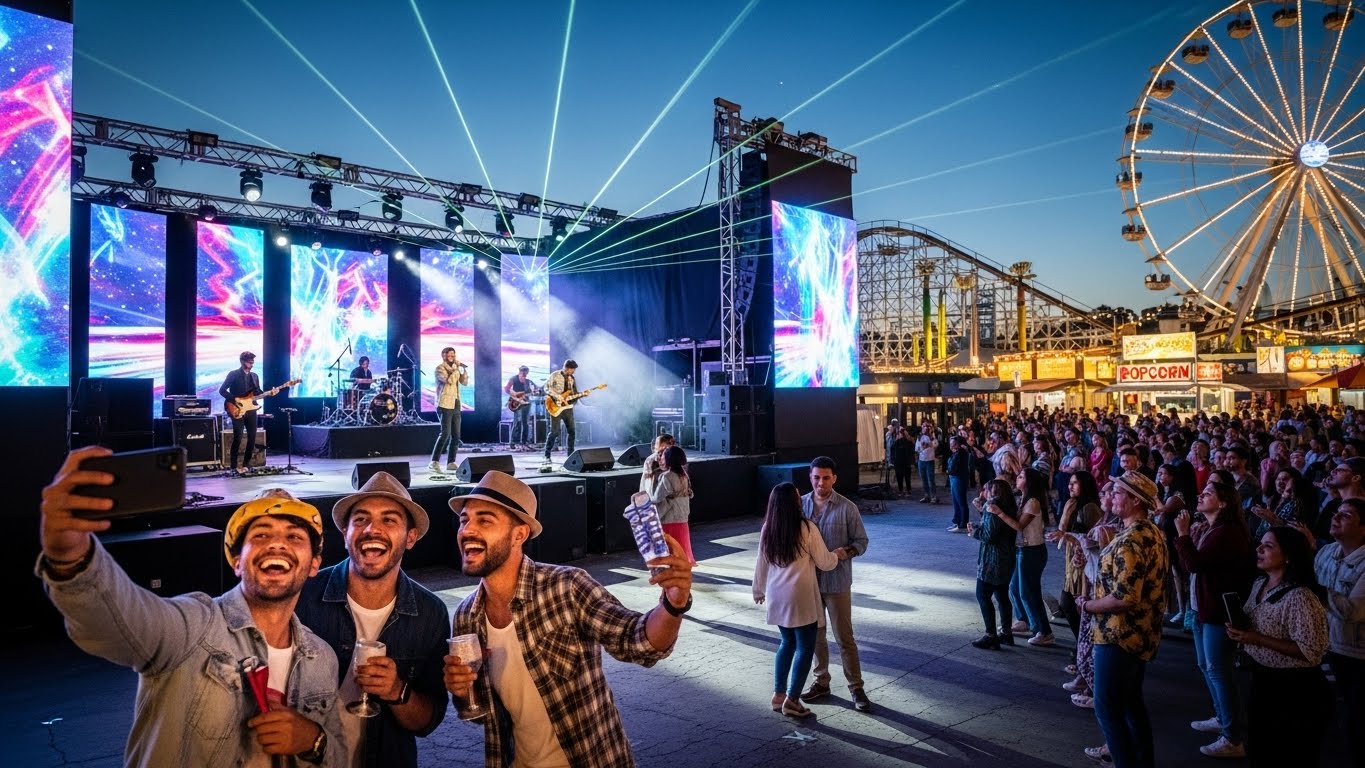The Endless World of Entertainment: A Journey Through Imagination, Emotion, and Expression

Entertainment has always been at the core of human existence. From the earliest days when stories were told around campfires to the grand cinematic experiences of today, entertainment has evolved alongside civilization itself. It reflects who we are, what we dream of, and how we express our emotions. The world of entertainment is vast and ever-changing—music, film, television, theatre, literature, gaming, sports, and digital media all weave together to create a global culture of joy, creativity, and escape.
In this blog, we’ll take a deep dive into the universe of entertainment—exploring its evolution, its emotional power, its impact on society, and the future that awaits in this vibrant and limitless field.
The Evolution of Entertainment
The concept of entertainment is as old as humanity. Before screens, songs, and stages, people entertained themselves through storytelling and dance. Ancient civilizations had their unique forms of amusement—the Romans had grand gladiatorial games, the Greeks had dramatic theatre, and ancient Asian societies celebrated cultural music and dance festivals that remain influential today.
As society progressed, entertainment evolved into structured forms. The Renaissance brought music, art, and theatrical masterpieces to the forefront of European culture. With the invention of the printing press, books became a source of mass entertainment, allowing people to immerse themselves in stories that transported them to distant worlds.
The 20th century revolutionized entertainment with technology. Radio connected voices across borders, cinema brought moving pictures to life, and television made entertainment accessible to every household. Each invention changed not only how we entertained ourselves but also how we connected as a global audience.
Now, in the digital age, entertainment is instantaneous and limitless. Streaming platforms, social media, virtual concerts, and interactive gaming have made entertainment more personal and immersive than ever before.
The Emotional Power of Entertainment
Entertainment is not merely about fun—it is deeply emotional. Whether it’s a film that makes us cry, a song that lifts our spirits, or a performance that leaves us in awe, entertainment has the power to touch the soul.
A movie can teach empathy. A song can become a lifelong companion. A story can inspire generations. These experiences are not accidental—they are crafted to connect with human emotion. The best entertainers, from actors to musicians to writers, understand that their art must evoke feeling, not just attention.
We often underestimate how much entertainment shapes our moods. Watching a comedy show can instantly relieve stress. Listening to soulful music can help us through heartbreak. Reading a novel can awaken creativity and hope. Entertainment, in all its forms, becomes a form of therapy—an invisible bridge between our emotions and the world around us.
The Role of Storytelling in Entertainment
At the heart of all entertainment lies storytelling. Whether told through film, song lyrics, theatre, or even video games, stories are what truly captivate us. They give meaning to the visuals and sounds we consume.
A powerful story doesn’t just entertain—it makes us think. It invites us into someone else’s world, allowing us to experience life from another perspective. This is why storytelling has been used for centuries as a way to teach values, pass down traditions, and inspire change.
In cinema, storytelling is visual and emotional. In music, it’s rhythmic and lyrical. In games, it’s interactive and immersive. Every form of entertainment has its own storytelling language, but the goal remains the same—to make the audience feel something genuine.
The Rise of Digital Entertainment
The past two decades have completely reshaped the entertainment industry. The internet changed everything—from how we watch movies to how we listen to music and even how we define “fame.”
Streaming services replaced traditional television. YouTube and social platforms gave birth to a new generation of entertainers who don’t need studios or record labels. Anyone with talent, creativity, and access to a smartphone can now reach millions.
This democratization of entertainment has made the industry more diverse and inclusive. It allows people from different cultures, languages, and backgrounds to share their art and stories with a global audience.
At the same time, digital entertainment has created new challenges—issues like content overload, short attention spans, and the blurring of lines between reality and fiction. Despite these challenges, the digital world has opened doors for creativity that were once unimaginable.
Music: The Universal Language of Emotion
Music is one of the oldest and purest forms of entertainment. It transcends boundaries, cultures, and languages. Whether it’s the thundering beats of a concert or the soft hum of a lullaby, music connects people on a spiritual level.
Different genres evoke different feelings. Pop energizes, classical soothes, rock ignites passion, and jazz brings sophistication. Music can transform an ordinary moment into something unforgettable. Think of how a movie scene becomes more powerful when the right song plays in the background—it amplifies emotion, memory, and meaning.
In today’s world, music streaming has made every genre accessible to anyone, anywhere. Musicians now reach global audiences in seconds, and collaborations between artists from different countries are more common than ever. This blending of cultures through music continues to shape the modern entertainment landscape.
Film and Television: The Art of Visual Storytelling
Cinema and television are perhaps the most influential forms of modern entertainment. They combine art, technology, and storytelling to create immersive experiences that can move entire nations.
A great film does more than entertain—it provokes thought, challenges beliefs, and reflects society. From classic dramas to science fiction epics, movies allow us to explore human nature, history, and imagination.
Television, on the other hand, has evolved from simple sitcoms to complex series with cinematic quality. Streaming platforms have made binge-watching a global phenomenon. Viewers now demand depth, diversity, and realism in their shows, pushing creators to constantly innovate.
Films and TV shows are no longer just pastimes—they are cultural milestones that define generations.
Gaming: The New Age of Interactive Entertainment
Video games have grown from pixelated adventures into vast virtual worlds. What was once considered a hobby for kids is now a massive industry that rivals movies and music in popularity and revenue.
Modern games are immersive, emotional, and cinematic. They tell stories, challenge minds, and connect people from across the globe through online play. Esports tournaments now fill arenas, and professional gamers enjoy fame similar to that of traditional athletes.
The appeal of gaming lies in interactivity. Unlike passive entertainment, games invite the audience to participate, to shape the narrative, and to experience control. It’s entertainment that merges imagination and engagement—a perfect blend of art and technology.
The Influence of Celebrities and Pop Culture
Celebrities have always been the face of entertainment. From the golden age of Hollywood to today’s social media influencers, public figures shape trends, opinions, and dreams.
Pop culture, driven by entertainment icons, dictates fashion, language, and even lifestyle choices. What we watch, wear, and listen to often reflects the cultural influence of these figures.
However, celebrity culture also has its complexities. The pressure of fame, the scrutiny of public life, and the rise of cancel culture have redefined what it means to be a public entertainer. Despite this, celebrities continue to play a powerful role in shaping the entertainment world and its audiences.
Live Entertainment: The Magic of the Moment
There is something unique about live entertainment that digital media can’t replicate—the shared energy of the moment. Whether it’s a concert, theatre performance, or stand-up comedy show, live entertainment connects performer and audience in real time.
The thrill of hearing live music, watching a play unfold on stage, or laughing together in a comedy club creates an emotional bond that streaming cannot match. It reminds us that entertainment is not just about watching—it’s about experiencing.
Even as technology grows, live performances remain timeless. They celebrate human connection and creativity in its rawest form.
Literature and the Imagination
Books remain one of the purest and most personal forms of entertainment. Reading allows the mind to paint its own pictures, guided only by words.
Unlike films or games, literature gives the reader complete creative control. Each person imagines the story differently, creating a deeply personal connection with the material. From classic novels to modern fantasy epics, literature continues to inspire other entertainment mediums. Many of today’s blockbuster films and shows originate from written stories that first captivated readers’ imaginations.
The Social Impact of Entertainment
Entertainment is more than an escape—it’s a mirror to society. It reflects our joys, struggles, and aspirations. Films challenge political systems. Songs ignite social movements. Theatre exposes truths. Comedy questions power.
Throughout history, entertainment has influenced public opinion and shaped cultures. It can unite people during crises, bring attention to important causes, and even change laws and perceptions.
Yet, entertainment can also divide when misused or misunderstood. That’s why creators hold great responsibility—to entertain, but also to enlighten.
The Business of Entertainment
Behind the glamour of entertainment lies a massive global industry. Every movie, concert, game, and show involves teams of professionals—from producers and directors to marketers and technicians.
The entertainment industry generates billions of dollars annually, providing jobs and economic growth worldwide. As technology evolves, new business models continue to emerge. Influencer marketing, digital streaming, and online content creation have revolutionized how artists earn and sustain their careers.
The business side of entertainment proves that creativity and commerce can coexist when balanced with authenticity and innovation.
The Future of Entertainment
The future of entertainment is boundless. Virtual reality, augmented reality, artificial intelligence, and immersive experiences are redefining how we consume content. Soon, audiences won’t just watch—they’ll live inside the stories.
AI-driven storytelling could allow viewers to choose plot directions. Virtual concerts might feel as real as live ones. The fusion of technology and creativity promises a future where entertainment is more personal, emotional, and interactive than ever.
Yet, even as we move toward futuristic innovations, one thing will never change—the human need to be entertained, to feel, to dream, and to connect.
Conclusion: The Heartbeat of Humanity
Entertainment is more than laughter, music, or spectacle—it’s the heartbeat of humanity. It reflects our imagination, celebrates our diversity, and unites us across cultures and generations.
In every era, entertainment has evolved with society, adapting to new technologies and tastes, yet always rooted in the same human desire—to express, to escape, and to connect. Whether through a timeless song, a gripping story, a thrilling game, or a powerful performance, entertainment continues to remind us what it means to be alive.
It is not just something we consume—it is something we live, breathe, and share. And as long as there are dreams to dream and stories to tell, the world of entertainment will never stop growing, inspiring, and delighting the human soul.



